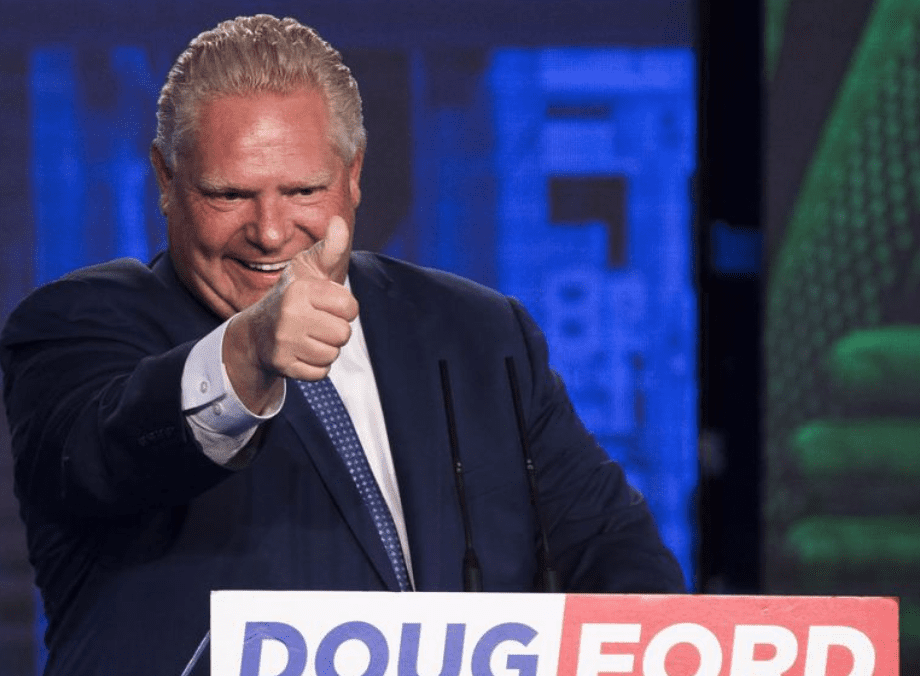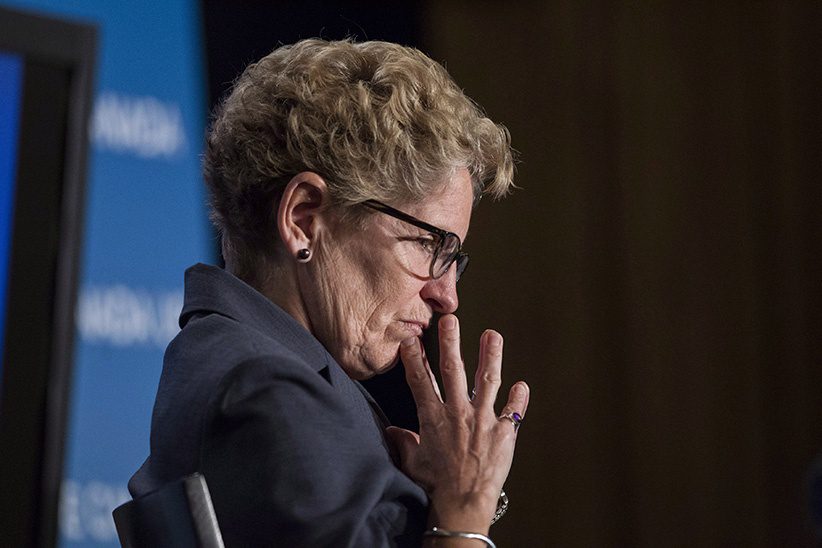Oh, come on. You thought it was over? You thought that removing the Liberals was going to usher in a period of quiet, where Ford's seasoned team subtly guides him away from Trumpian excesses and the NDP continues to try and build on the gains they made? Sorry to disappoint, but we're not through with the crazy by a long shot.
You can already see the storm clouds gathering, even as Tabatha Southey dismissing the more moderate elements of the PC Party as Ford enablers. Stephen Maher channeling the ghost of electoral reform. Calls for Ford to deny the Liberals official party status.
Of course, Team PC is trying to put their best foot forward, by standing with Jason Kenney and Trudeau against Trump (he can't BE Trump if he OPPOSES Trump, right? right??????), by speaking out against anti-Israel rhetoric on al-Quds day, and by getting down to work with those high-profile, resume-strong MPP-elects in his new caucus. All meant to calm the waters after a tumultuous election, and also to help the electorate forget all about those slow-boiling Ford scandals and lawsuits that cropped up during the campaign.
Unfortunately, these cooler heads within the PC fold overestimate their ability to prevail. How soon they forget the Harper years, where everything the man did to advance his agenda was loudly opposed, and how soon they forget their own excesses of rhetoric during the 15 years of Liberal rule a learned habit which will be harder to break than they think despite being on the other side of the aisle. Add to that Ford's learning curve if a curve is even possible with him and the likelihood that the PC's will do something, intentionally or otherwise, to make the anti-Ford forces rise up in full witch-hunt mode becomes higher and higher.
And even if Ford somehow pulls off the unlikely feat of out-Bill Davis-ing Bill Davis, those campaign scandals will no doubt be vigorously prosecuted by the new Opposition with the intent, or certainly the effect, of creating our very own Canadian knockoff of the Mueller investigation.
We'd all love to hope otherwise, but there is absolutely no chance the NDP will take the high road of quietly organizing, or working for the benefit of the province. Instead, Ontarians will get all scandal-mongering, all the time. Remember that, after a whole campaign spent trying to appear Ready To Lead, Andrea Horwath finally dropped the pretence and waded into the muck in the dying days of the campaign, commenting to no discernable benefit and a possible loss on Renata Ford's lawsuit against Premier-to-be Doug.
Why? For the same reason the commentariat is pulling at straws to find an explanation for how we got here. The temptation to take partisan advantage proved too great. The barely concealed hatred for Ford justified as it may be bled through. And to be quite honest, it's better in the long run for the NDP to own their hatred of Doug Ford and the Ontari-archy he represents.
The PC's, whether they want to admit it or not, won because they owned what they were. Whatever the PC Party of Ontario was in 1985, it is Doug Ford and Ford Nation now, for better or for worse. And, perhaps it was Ford Nation, or whatever passed for Ford Nation, back in 1985, rather than the moderate paragon that nostalgia has made it out to be. None remain who know, or will tell.
And the NDP, who in last week's election elected the woman who called a Toronto Police Chief a filthy, racist epithet, the Leap Manifesto endorser, the guy who held up the "F**k the Police" sign, and the woman who openly published stuff on her Tumbr that isn't too far away from the language used at Al-Quds Day, are much closer than they were before the writ dropped to being the NDP that they have always really been underneath their mask.
The province of Ontario has been ill-served in the past few decades by pretending it's something that it isn't. Before it can dig itself out of the ditch, it needs to take a good, long, honest look in the mirror. The longer spent delaying, the more times we'll lurch back from calm into chaos.
Written by Josh Lieblein









